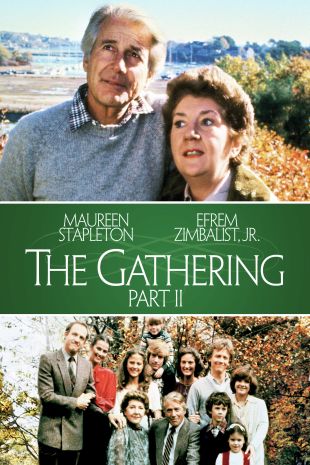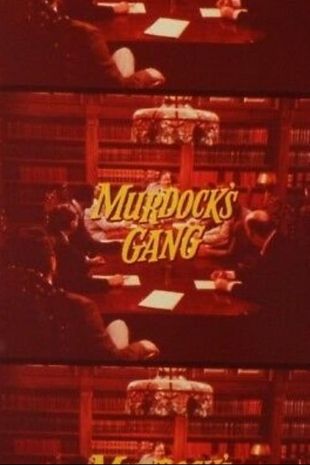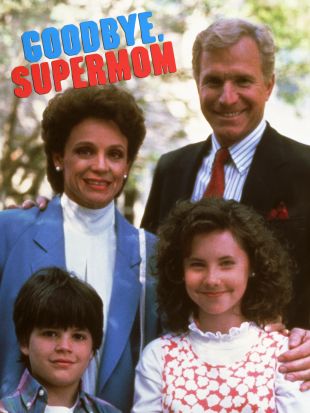Against some very long odds -- including being blacklisted -- Charles S. Dubin enjoyed a long and honored career as a director, primarily on television. Born in Brooklyn, New York, in 1919, Dubin was attracted to the arts while attending Samuel J. Tilden High School, and set the goal for himself of being an opera singer -- indeed, he wanted to be the next Feodor Chaliapin. He attended Brooklyn College, studying drama with Joe Davidson, the father of director Gordon Davidson, and graduated in 1941. He later trained at the Neighborhood Playhouse in Manhattan under Sanford Meisner and also subsequently studied directing with Lee Strasberg. Dubin began performing in the Catskills, doing comedy, drama, and music, and was asked back as a director the following year. Thus began his directorial career, although standing six feet tall and extremely handsome, and possessed of a powerful voice, he couldn't avoid the inevitable offers of acting and singing work. After the Neighborhood Playhouse, Dubin moved on to the Papermill Playhouse and performed later professionally in Something for the Boys, understudying Allen Jenkins in the lead and in other productions, making his Broadway debut in early 1945; he also understudied William Gaxton and Victor Moore in Hollywood Pinafore, and performed with the Philadelphia Opera Company. Dubin was able to make the jump to the small screen when television became a commercially viable medium.
In 1950, he was hired by ABC as an associate director and moved up to the director's chair a few months later; his first programs were Tales of Tomorrow, a science fiction anthology series, and a comedy series starring Peggy Ann Garner entitled Two Girls Named Smith. TV was all live in those days and Dubin became an expert at juggling actors, cameras, and microphones coherently and even artistically, on shows such as Motorola Playhouse, Pulitzer Prize Playhouse, and Philco Playhouse. On Omnibus, his productions included Advice to Bathers with Esther Williams, William Saroyan's My Heart's in the Highlands, the opera The Ballad of Baby Doe, and a brace of programs featuring Leonard Bernstein (including Young People's Concerts: What Does Music Mean?) and Agnes de Mille, dealing with music and dance, respectively. His reputation for being able to deliver quality quickly also got Dubin his first theatrical film credit, for the Alan Freed jukebox movie Mr. Rock and Roll (1957), featuring Clyde McPhatter, Chuck Berry, Frankie Lymon & the Teenagers, and an enviable array of other early rock & roll and R&B stars. By the mid-'50s he was working as the director of one of the medium's top-rated quiz shows, Twenty-One.
In the spring of 1958, Dubin was called to testify by the House Un-American Activities Committee, in its investigation of alleged Communist infiltration in the television and theater industries. Dubin refused to testify, asserting his right to silence under the Fifth Amendment to the United States Constitution, invoking the right 22 times. He later explained that he was not, at that time, a Communist Party member and had never known of any activity contrary to the interests of the United States, but also believed in his right not to testify. He was never cited for contempt, but NBC and the producers of Twenty-One dismissed the married father of two the next day. He didn't work in television for the next three years, until the makers of the series The Defenders hired him as a director -- he followed that with an episode of The Virginian, and then The Nurses, and suddenly he was back.
After directing the 1964 television production of Rodgers & Hammerstein's musical Cinderella, Dubin became one of the busiest directors in television over the next 25 years, on series such as Ironside, Bracken's World, Room 222, Judd for the Defense, Cannon, Hawaii Five-O, Kung Fu, Kojak, The Rockford Files, Lou Grant, Sledge Hammer, and Matlock, though he probably made his greatest impact on the series M*A*S*H, for which he directed more than 50 episodes. In the mid-'70s, he also moved into miniseries and made-for-television features, among them episode two of Roots: The Next Generations and the 1979 remake of Topper with Kate Jackson and Andrew Stevens. He also directed his second feature film, Moving Violation (1976), a chase-thriller similar in plot to Richard Compton's Macon County Line (1974). Most of his work was confined to television, however, and beyond his activities for the commercial networks, Dubin also did top-notch work for PBS, including a special devoted to Agnes de Mille, and acclaimed dramas including The Belle of Amherst, starring Julie Harris. By the mid-'80s he had ten Emmy nominations to his credit, and was equally at home doing serious, high-brow subjects or light comedies. Dubin retired after 1989 at the age of 70, after 39 years in television and 48 years in entertainment. He died in 2011 at the age of 92.


